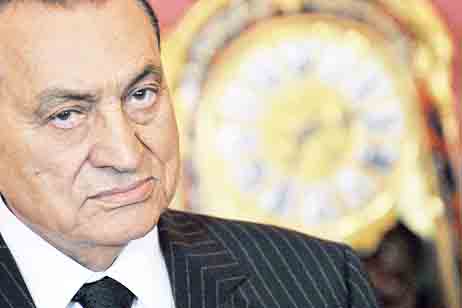
(AFP PHOTO / ANWAR AMRO)
Egyptian expatriates have been given an extra 24 hours to cast their ballots in the presidential elections due to the high turnout in embassies and consulates around the world, confirmed the foreign ministry on Sunday.
The Presidential Election Committee decided on Saturday to extend the voting period, which was originally scheduled to close at 9pm on Sunday (local time) but will now close at the same time on Monday.
Voting for expatriates began last Thursday, and as of 3pm on Sunday the foreign ministry estimated that at least 258,000 Egyptians had cast their votes. Expatriate turnout in the 2012 presidential elections reached 311,875 in the first round, but was slightly lower, 306,812 (including 5,092 invalid votes), in the run-off between Ahmed Shafiq and Mohamed Morsi.
Egyptians have been able to vote in 141 overseas embassies and diplomatic missions in 124 countries to choose their next president, either former military chief Abdel Fattah Al-Sisi or Nasserist Hamdeen Sabahy.
Mohamed Khairat, studying law in Melbourne, Australia, described the mood at the consulate as “festive” when he went to vote last Friday. He noted that many people came to vote with their families over the weekend, while it was mostly individuals on the weekdays. Khairat also noted: “Prior to commencing the vote, the representatives and any voters are shown that the ballot box is empty.” He added: “At the end of the day, it is sealed and stamped.”
In Yangong, Myanmar, entrepreneur Shady Ramadan said he was one of around 20 Egyptians to participate in the election. He found the voting system to function well. “I was already registered but I found people who are not registered and just moved to Yangon. They voted with their [national identification cards].” Ramadan described how an embassy official entered the identification numbers into a computer to ensure that there were no people voting more than once.
Ramadan, who has lived in Myanmar since 2010 but returned to participate in the 25 January Revolution, said that he was considering boycotting the election. “The last time was clear. I am not voting [for] a military or an Islamist [candidate]. This time is a bit different.” He continued: “I hate participating in it [the election],” believing the result to be a foregone conclusion in favour of Al-Sisi. “At the same time I don’t want the military to win with 90%”. He added that he would have liked to see someone like labour lawyer Khaled Ali, who he voted for in the 2012 presidential election, to run against Al-Sisi. He added that in his opinion “It is not free or fair election”.
Other voters around the world were not so happy with the voting procedures. Nadim, an Egyptian living in Switzerland, said that he was unable to afford the time to vote. He said that he would have preferred to have a postal vote, which is not available for this election or the constitutional referendum in January. Nadim added: “It is not practical and would have been expensive to travel all the way to the consulate in Geneva or the embassy in Bern.”
Mena Hanna, a university student living in Detroit, Michigan, United States, said neither he nor members of his family would vote in the election because of the distance they must travel to cast their ballot. “The closest consulate is 5 hours away in Chicago,” said Hanna, adding: “[It is] Too far of a drive, plus blatantly predictable outcome made me feel like it wasn’t worth it.” He said that he definitely would have voted had a postal vote been available.
Hanna said the Coptic Orthodox Church provided buses to help people get to the consulate in Chicago but because this was on a Friday, “Not many were willing to miss work and sit on a bus for that long to go vote.” Khairat also noted that many of the voters in Melbourne arrived at the consulate on buses provided by the Coptic Church.
On Sunday there were small protests outside the consulate in Sydney and another organised outside the embassy in London on Sunday. The demonstrations were held by Egyptians who believe the election is illegitimate as it is a component of the roadmap which was laid out following Morsi’s ouster in July 2013.
Anthony Hanna, who was in Sydney on Sunday said of the protesters: “They felt passionate about the fact that these elections are fraudulent and everyone in front of them lining up to vote was brainwashed.” He said the police were on hand ensuring that the protesters and those queuing to vote did not meet.
Voting inside Egypt will take place on 26 and 27 May.



